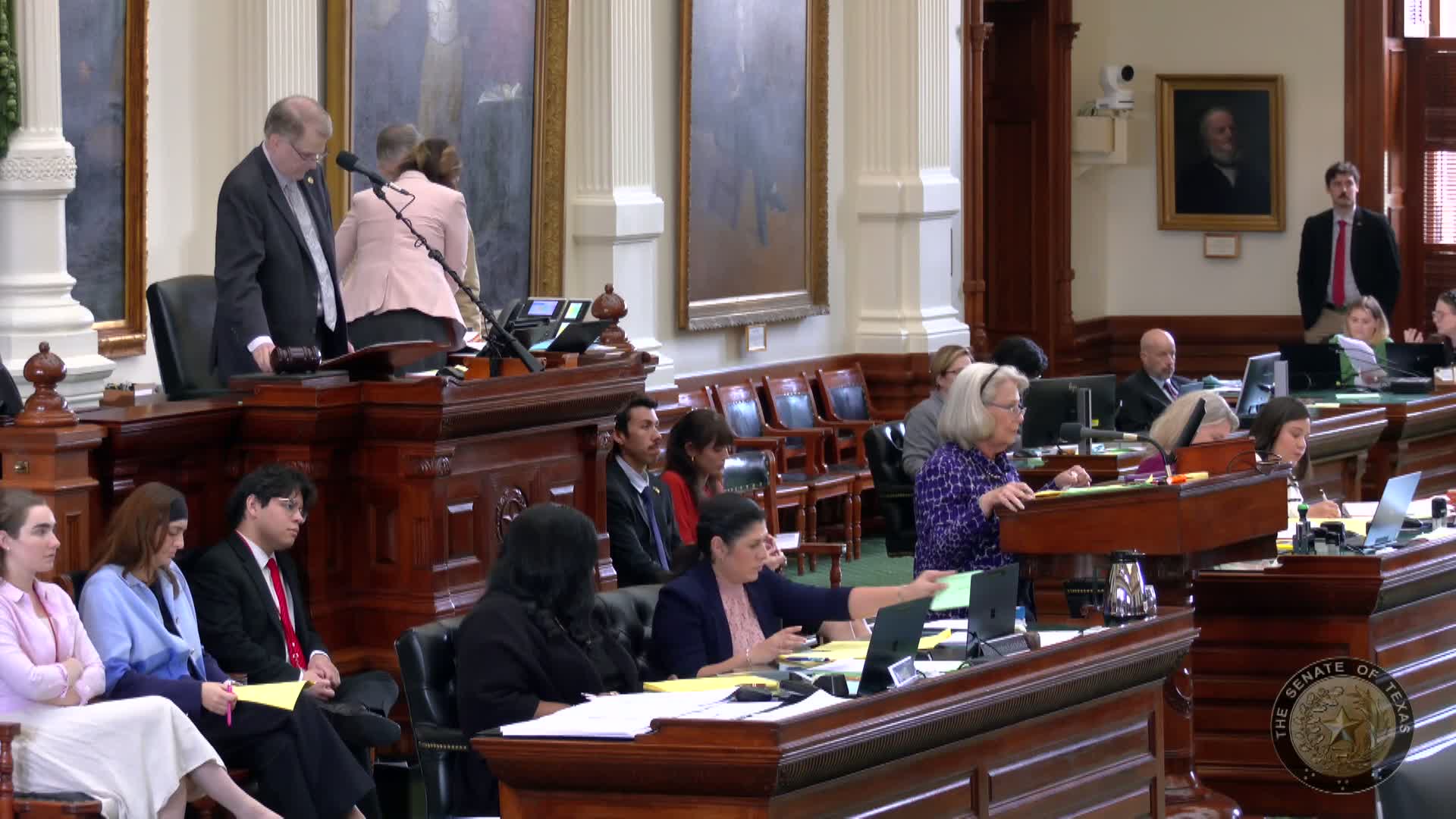Senate approves rule requiring most Medicaid nursing-facility dollars be spent on direct care
Get AI-powered insights, summaries, and transcripts
Subscribe
Summary
The Texas Senate passed committee substitute Senate Bill 457, establishing a patient-care expense ratio for Medicaid reimbursements to nursing facilities, requiring most Medicaid funds be used for front-line patient care and increasing ownership transparency for facilities.
The Texas Senate on May 1 passed committee substitute Senate Bill 457, a measure requiring nursing facilities that receive Medicaid to spend a defined share of those Medicaid dollars on direct patient care and to disclose greater ownership information.
Senator Lois Kolkhorst, the bill sponsor, said the legislation would create “a patient care rate ratio” that “intends that at least 85% of Medicaid dollars are spent on front facing care,” and described exemptions and floor protections for struggling facilities. She moved the bill through the floor process; it passed final passage by recorded voice with 31 ayes and no nays.
The bill sets an outcomes-centered spending requirement that counts direct-care items — such as salaries of direct care staff, laboratory testing, dietary services and medical equipment — toward the patient-care numerator. Facilities that earn high marks under selected Centers for Medicare & Medicaid Services (CMS) five-star quality categories are exempted from the ratio; facilities with average occupancy under 75% have a lower required ratio (70%). The bill also exempts facilities from the ratio during disaster periods when a gubernatorial disaster declaration is in effect. Kolkhorst said the bill folds the existing nursing facility direct care staff rate enhancement program into the broader spending requirement and clarifies the rule applies to Medicaid dollars appropriated through the general appropriations act and matched by federal funds, not to other payment streams such as Quality Incentive Payments (QIP).
Kolkhorst emphasized that the measure is a spending rule, not a staffing mandate: “This is not the Biden era staffing ratio. It has nothing to do with staffing. This is a spending ratio,” she said on the floor. She warned of trade-offs: “If the percentage at 85% is too harsh, we’ll see some nursing homes close. If it’s too generous, we’ll see more money go to those private equity partners.”
The bill also raises ownership-transparency requirements by requiring disclosure of any owner or affiliated entity with a 5% or greater direct or indirect ownership interest, including parent entities and private equity owners.
Supporters argued the measure improves accountability so taxpayer-funded Medicaid dollars reach residents’ care. Senators asked for, and Kolkhorst cited, companion budget provisions and previous session work that increased state investment in nursing homes. The bill passed to engrossment and then final passage on the Senate floor the same day.
Senate action: Kolkhorst moved suspension of regular order, passage to engrossment, suspension of the constitutional three-day rule, and final passage. Final vote: 31 ayes, 0 nays.
Implementation details include a PDPM-focused numerator/denominator definition, CMS quality exemptions, a 75% occupancy floor threshold, and an exclusion of capital and administrative expenses from the patient-care calculations. The sponsor said QIP receipts — roughly $1.75 billion in federal funds to many facilities — are outside the bill’s ratio.
